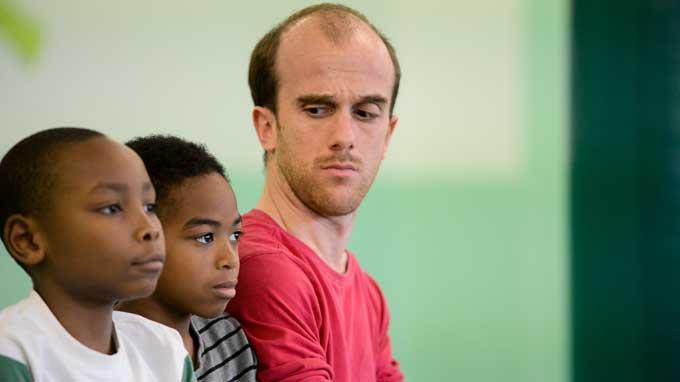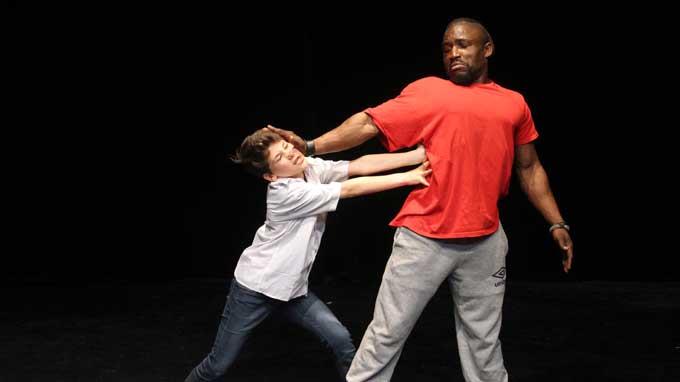The international physical theatre piece L'Homme qui Marche (The Walking Man) has left footprints across the European continent and its neighbouring countries, breaking down boundaries and paving the way for peace and tolerance. Produced by French theatre company Image Aiguë, the show has been performed in France, Germany, Bosnia, Morocco and Georgia. Now, its next destination is San Ġorġ Preca College in Hamrun, as part of the ŻiguŻajg International Arts Festival for Children and Young People 2018, on 23 November at 5.30pm.
Since its foundation 35 years ago, Image Aiguë has united actors from different cultures, origins, and ages on stage in over 40 countries. But, on 23 November, the company will be sharing its message with a Maltese audience for the very first time. In their productions, each actor speaks in their native tongue and, together, they find alternate means of understanding each other by creating new forms of language, such as voice intonations, facial expressions, body language, images, music and emotions. Nicolas Bertrand and Christiane Véricel are part of the production team that will be bringing L'Homme qui Marche to San Ġorġ Preca College, together with Teatru Malta, in collaboration with Żigużajg, Valletta 2018 and The French Embassy.
The aim of the project is to help students come together through arts and to better their secondary school experience. The one-hour show creates a dialogue between the audience and two performers, encouraging the viewers to reflect on the contemporary world. The site-specific performance, which deals with borders, discusses how to share and live within a territory.
Speaking about the themes of the piece, Mr Bertrand explains: "One important aspect of the performance is the relationship that arises between those who own something and those who don't. We treat these themes with humour and each audience member is invited to express his views on issues that extend beyond ourselves."

The secondary school students from San Ġorġ Preca College are involved in the putting-together of the piece on two levels. Bertrand explains: "Firstly, as audience members, they will be the first ones to witness the stories of L'Homme qui Marche on the island. Therefore, their comments and reactions will contribute to making the themes of the show more relevant in a Maltese context."
The show will also try to encourage its audience to view society through a positive lens and cultivate awareness that each person has the capacity and responsibility to participate and help create a more democratic society. "Secondly, we will work with some of the students as actors and, together, will research the characters and the stories that make up L'homme qui Marche. Then, the results will be presented to the students' parents and friends," he continues.

The finished result will be a theatrical conversation based on four stories, followed by a discussion with the audience. The subject matter will cover multiple topics, including survival and food; finding one's place in the world, borders and resistance; work, power, the exploitation of others and manipulation and social organisation, togetherness and separation. "I make suggestions and pose questions - without providing the answers myself - to encourage the spectators to read the stories again, vigilantly, and then, to express their thoughts," says director Christiane Véricel. "The role played by the audience is essential in the reciprocal artistic process we employ for this show, as their feedback enables a link between the virtual space of the stage and the transposition of the shared message into the real world."

The themes of this production are issues that can be found at the heart of our society's debate. "The notions of territorial borders, power relations and self-expression concern children, although, perhaps, not to the same extent as adults, fortunately," Bertrand concludes.
'L'Homme qui Marche' will be produced by Image Aiguë and Teatru Malta at San Ġorġ Preca College, Hamrun on 23 November at 5.30pm as part of the ŻiguŻajg International Arts Festival for Children and Young People 2018